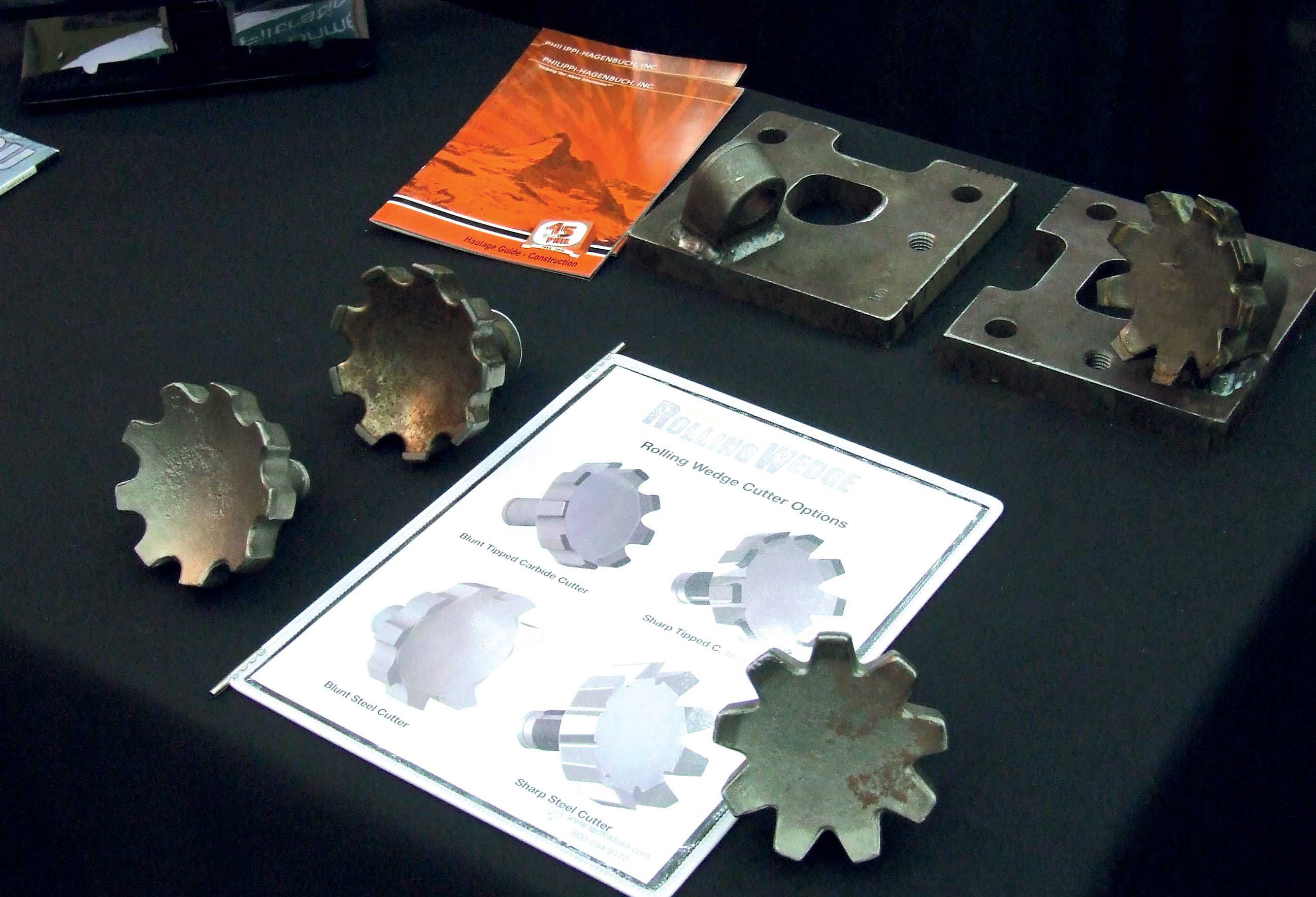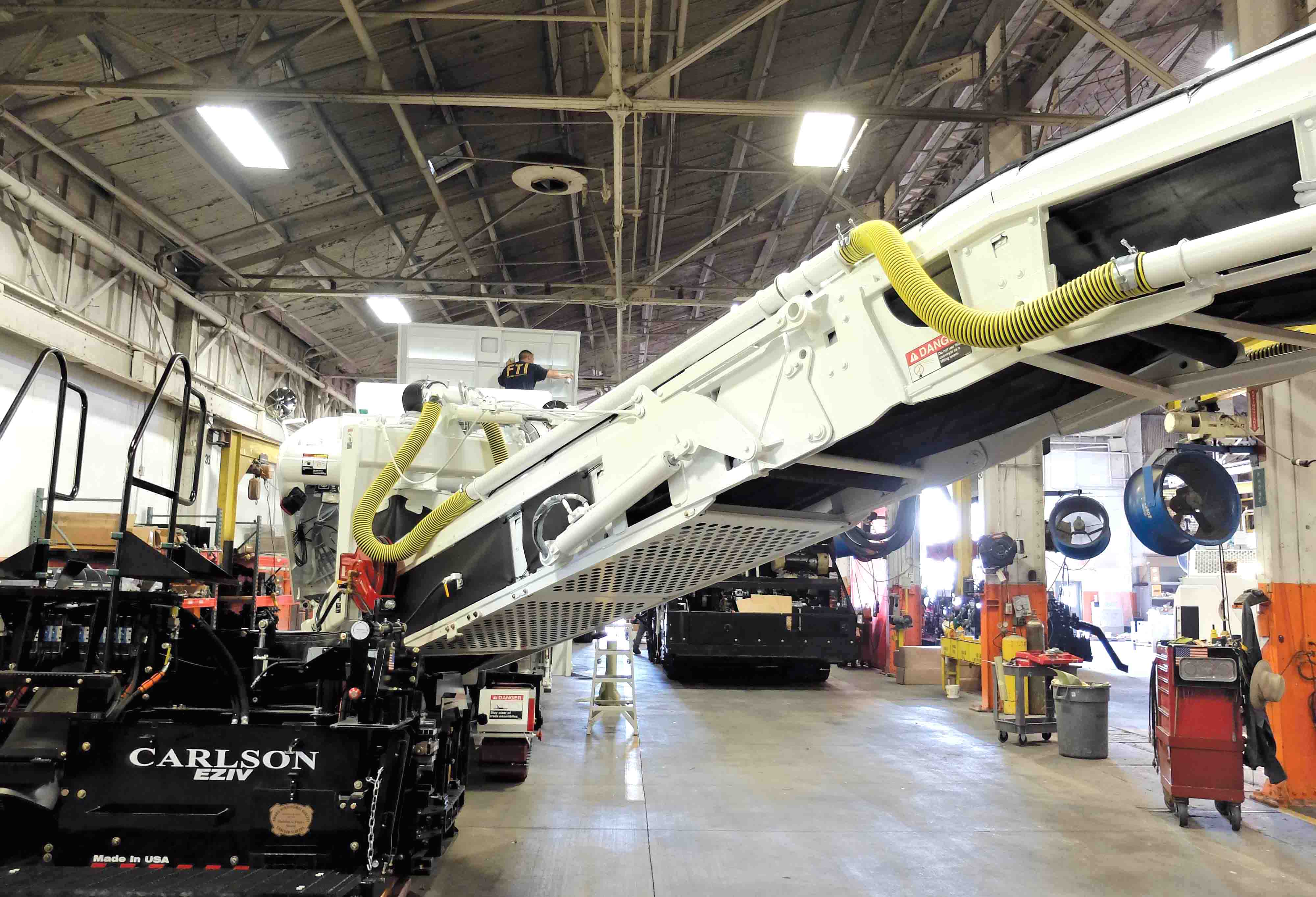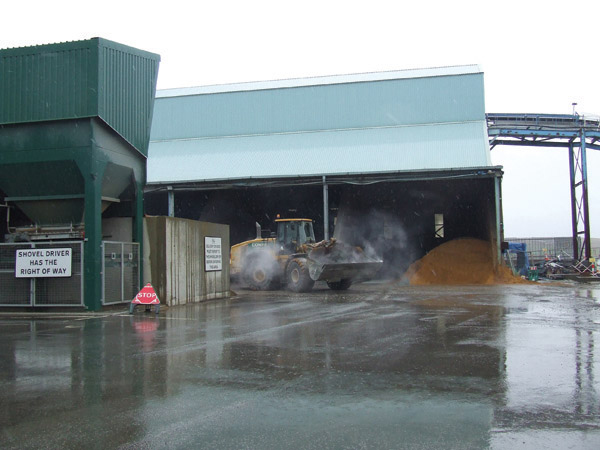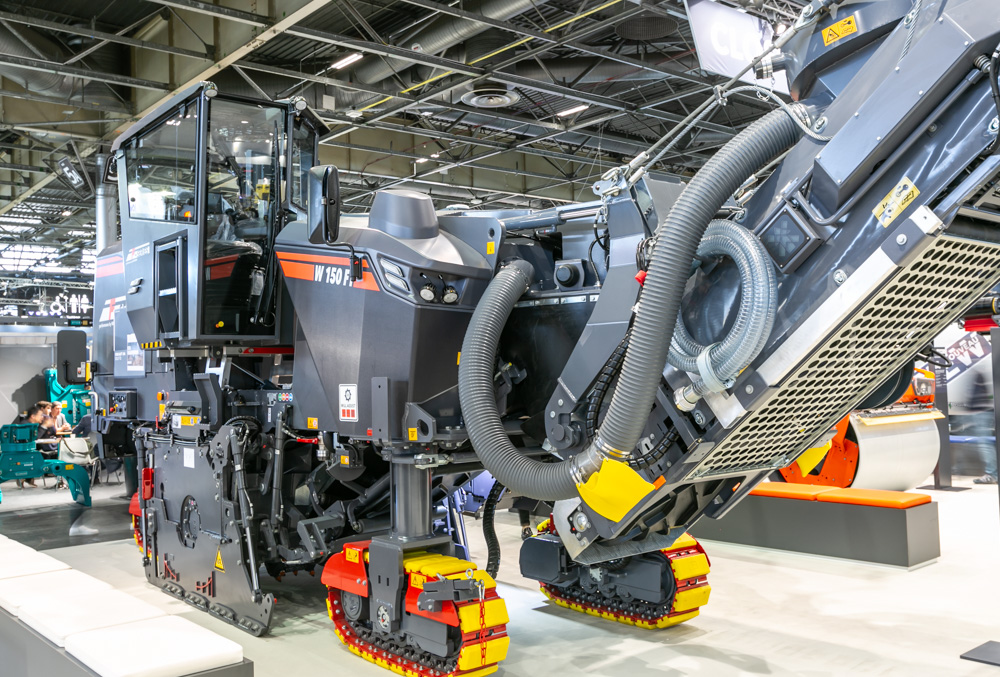Road recycling technology was one focus area at the recent World of Asphalt exhibition in the US city of Baltimore - Mike Woof writes. The economic and environmental benefits to be gained from recycling road materials are well understood. In many markets such as North America, Europe and now China, the percentage of road materials being recycled is on the increase. New technologies are helping make recycling more efficient and widening the possibilities for contractors and clients
One innovative deve

The novel Rolling Wedge cutters from Philippi-Hagenbuch offer major potential for milling applications
Road recycling technology was one focus area at the recent 6069 World of Asphalt exhibition in the US city of Baltimore - Mike Woof writes
The economic and environmental benefits to be gained from recycling road materials are well understood. In many markets such as North America, Europe and now China, the percentage of road materials being recycled is on the increase. New technologies are helping make recycling more efficient and widening the possibilities for contractors and clients
One innovative development in cutting technology that is now available for milling machines comes from US firm Philipi-Hagenbuch. This new concept has taken a radical approach to the design of cutters used in milling, offering major gains in wear life and also performance.
The firm’s novel Rolling Wedge is effectively a toothed cutting wheel that takes the place of conventional carbide teeth used on milling drums. These units are arranged on the cutting drum in a similar pattern to the standard cutters and placed at an angle, while also being free to rotate.
This different orientation means that the Rolling Wedge uses a different cutting principle, effectively breaking off material using shearing forces. As a result, this lowers the wear and tear experienced by the cutting edges. Josh Swank is vice president of sales and marketing at6510 Philippi-Hagenbuch and he said, “They last one and a half to two times as long as conventional carbide teeth.”
Testing work carried out by the firm has showed these cutters offer considerable benefits, while more research is still being carried out. He said, “We’ve been focussing on what tips we need for different applications.”
The firm now offers a choice of four basic cutting types, with options for blunt or sharp tips and carbide inserts or hardened steel. However it is entirely possible that more Rolling Wedge cutters will be developed as the range of applications grows and as experience with the concept increases. The finish left by the cutters when milling is broadly similar to that produced conventional cutting tools, so there should be no concern over the suitability of the surface for laying new asphalt on top. However one important finding from the tests carried out so far is that the cutting action using the Rolling Wedge units requires less power than for conventional milling picks. This is significant as it means a milling machine will suffer less wear and tear and potentially offer major savings in maintenance costs, with substantial increases in wear life for cutter drum drives and bearings for example. Fuel consumption too will be reduced, as the milling machine’s engine could be run at a lower rpm, while achieving the same level of productivity. And from an environmental perspective, a milling machine would also be able to operate more quietly, a key point for some urban construction sites. The units could make a substantial gain in the efficiency of milling processes as well as further improving the environmental profile of road planning for producing RAP.
The research is ongoing but Philippi-Hagenbuch believes this cutter concept offers major potential. Swank said, “We’ve just started talking to the OEMs. We are working towards offering this as an OEM system.”
The economic and environmental benefits to be gained from recycling road materials are well understood. In many markets such as North America, Europe and now China, the percentage of road materials being recycled is on the increase. New technologies are helping make recycling more efficient and widening the possibilities for contractors and clients
One innovative development in cutting technology that is now available for milling machines comes from US firm Philipi-Hagenbuch. This new concept has taken a radical approach to the design of cutters used in milling, offering major gains in wear life and also performance.
The firm’s novel Rolling Wedge is effectively a toothed cutting wheel that takes the place of conventional carbide teeth used on milling drums. These units are arranged on the cutting drum in a similar pattern to the standard cutters and placed at an angle, while also being free to rotate.
This different orientation means that the Rolling Wedge uses a different cutting principle, effectively breaking off material using shearing forces. As a result, this lowers the wear and tear experienced by the cutting edges. Josh Swank is vice president of sales and marketing at
Testing work carried out by the firm has showed these cutters offer considerable benefits, while more research is still being carried out. He said, “We’ve been focussing on what tips we need for different applications.”
The firm now offers a choice of four basic cutting types, with options for blunt or sharp tips and carbide inserts or hardened steel. However it is entirely possible that more Rolling Wedge cutters will be developed as the range of applications grows and as experience with the concept increases. The finish left by the cutters when milling is broadly similar to that produced conventional cutting tools, so there should be no concern over the suitability of the surface for laying new asphalt on top. However one important finding from the tests carried out so far is that the cutting action using the Rolling Wedge units requires less power than for conventional milling picks. This is significant as it means a milling machine will suffer less wear and tear and potentially offer major savings in maintenance costs, with substantial increases in wear life for cutter drum drives and bearings for example. Fuel consumption too will be reduced, as the milling machine’s engine could be run at a lower rpm, while achieving the same level of productivity. And from an environmental perspective, a milling machine would also be able to operate more quietly, a key point for some urban construction sites. The units could make a substantial gain in the efficiency of milling processes as well as further improving the environmental profile of road planning for producing RAP.
The research is ongoing but Philippi-Hagenbuch believes this cutter concept offers major potential. Swank said, “We’ve just started talking to the OEMs. We are working towards offering this as an OEM system.”









